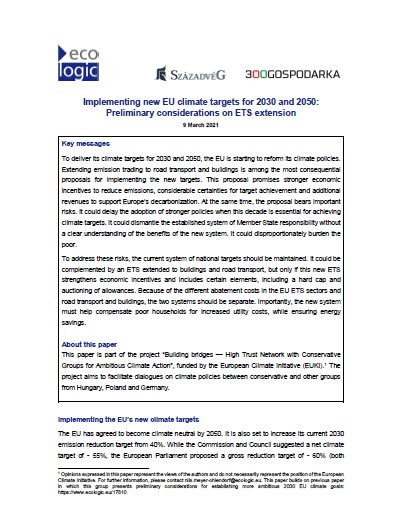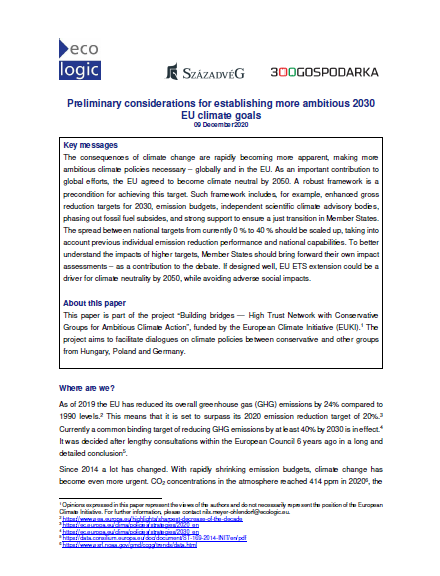Implementing New EU Climate Targets for 2030 and 2050
Preliminary considerations on ETS extension
- Publication
- Citation
Szazadveg Foundation, 300Gospodarka, Ecologic Institute 2021: Implementing new EU climate targets for 2030 and 2050: Preliminary considerations on ETS extension. Berlin.
To deliver its climate targets for 2030 and 2050, the EU is starting to reform its climate policies. Extending emission trading to road transport and buildings is among the most consequential proposals for implementing the new targets. This proposal promises stronger economic incentives to reduce emissions, considerable certainties for target achievement and additional revenues to support Europe's decarbonization.
At the same time, the proposal bears important risks. It could delay the adoption of stronger policies when this decade is essential for achieving climate targets. It could dismantle the established system of Member State responsibility without a clear understanding of benefits of the new system. It could disproportionally burden the poor.
To address these risks, the current system of national targets should be maintained. It could be complemented by an ETS extended to buildings and road transport, but only if this new ETS strengthens economic incentives and includes certain elements, including a hard cap, and auctioning of allowances. Because of the different abatement costs in the EU ETS sectors and road transport and buildings, the two systems should be separate. Importantly, the new system must help compensate poor households for increased utility costs, while ensuring energy savings.
These are the main conclusions of a joint paper by Szazadveg Foundation, 300Gospodarka and Ecologic Institute. This paper is part of the project "Building bridges – High Trust Network with Conservative Groups for Ambitious Climate Action", funded by the European Climate Initiative. The project aims at facilitating dialogues on climate policies between conservative and other groups from Hungary, Poland and Germany.





